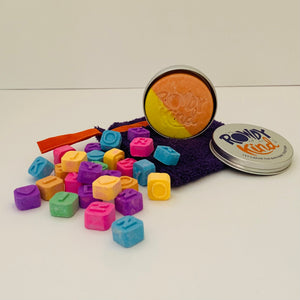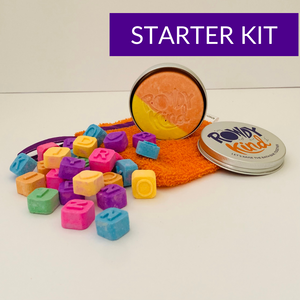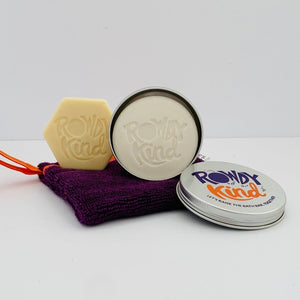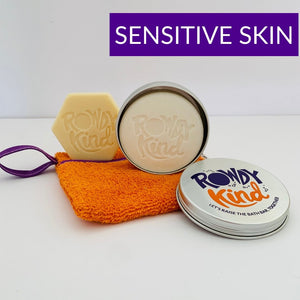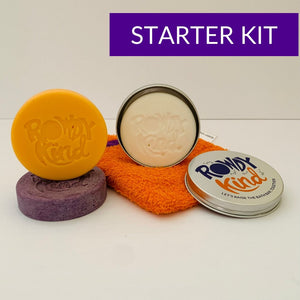This is part of a three-part guest series discussing how parents can work with kids to resolve bullying issues. You can also read Part 2 and then go on to Part 3.
My name is Kathleen – I am a mum of 3 kids (a 5 year old and 2.5 year old twins), a former teacher, and an anti-bullying specialist. Life, as you can imagine is pretty busy for me!
As an anti-bullying specialist, I hear from parents all the time about how hard (and scary) it is to ask their kid whether they are involved in bullying – either as the target or the child doing the bullying, but it’s important that we learn how to talk to our kids about difficult subjects. .
Asking questions is the best way to build these skills together. When we ask questions about their life and then truly listen, our kids learn that we care about their social worlds. Having these foundational conversations will position you as a safe adult if in the future things do pop up – and hopefully will allow them to share without much prompting.
It’s easier than you’d think, just follow these steps
Step 1: Set the Scene
Choose a time when your kids are a little softer: Maybe it’s bath time. Maybe it’s bedtime while you’re curled up after books have been read. My son opens up after his light should be out… hoping to keep me there a little longer! Aim for a time when they’re already calm. This allows for a more rational interaction – one that can foster an environment where they can share more sensitive information, and, actually solve some problems if they come up.
Step 2: Ask and Listen
When the scene is set, start with some open questions. Stuck? We've put some at the bottom of the blog to help you out. Start off broad, and end up direct. Try to listen to the answers and build on each question. If you need to, pause and think. It’s ok to take your time with this.
Also trust your instincts, you’ll know when one question is more important than another – and – then go with the flow. Keep talking as long as they are willing to share.
Final advice - try not to react. It can be hard, but you want to stay calm and supportive. Respond to everything with love (hugs, kisses, holding hands - whatever feels right), not judgement in any direction.
Step 3: When It Gets Hard
There are times when kids can’t express in words what they are feeling. And, as we know, finding information goes beyond just talking. Bath-time might be the time that they share some physical ailments. We can catch on to some of the physical discomforts they might complain about as a clue that something could be off with their peer group. Some things to watch for:
- Headaches
- Tummy aches
- Struggling to eat lunch or dinner.
- Asking to stay home from school.
- Huge emotions that you can’t find the root of (being really angry, really sad or really frantic).
- A disconnection or disinterest in activities they used to love doing, friends they used to hang out with, or, not engaging with the family at mealtimes or time together.
In these cases, touching base with your child’s teachers, parents of their friends, or community members might help you get the information you need to take action if needed. It might also be useful to make an appointment with your doctor to talk through these challenges too, they can help you access more support through the NHS if that’s what’s best.
I know that this is hard stuff… We never want our babies to be hurt, or, to hurt others. But, keeping our eyes and ears open to this possibility allows situations to be stopped quickly, and creates the safest environment for them to learn in.
Tomorrow we'll dive a little deeper into what to do when you find out bullying is an issue.
About the Author

Kathleen Hilchey is a mum of 3, a teacher, and an anti-bullying specialist. She works with families and adults to untangle these toxic relationships, and teaches her insights and methods to parents, schools, community groups, and workplaces. Her coaching methods include teaching better conflict management skills to her clients, and, co-creating a solution to the problem. This unconventional approach to bullying turns the "punishment" response on it's head - allowing for quick and lasting resolution to this complex problem. Get in touch with Kathleen on instagram @kathleen.hilchey.antibullying or www.kathleenhilchey.com
Questions to get your started:
Getting to know the social landscape:
- Who are you playing with at school?
- Who are you not playing with at school?
- Who used to be a friend and isn’t any longer?
- Who makes you feel warm and fuzzy in your class?
- Who makes you feel cold and prickly in your class?
- Who has the most friends in your class?
- Who doesn’t have any friends in your class?
Playground issues (a typical spot for bullying):
- What are your favourite things to do at break time?
- What are your least favourite things to do at break time?
- Who in your school is helpful if something happens on the playground?
Location of potential issues/solutions:
- Is there a place at school – a hallway, a bathroom, a spot outside – that feels unsafe?
- Where is the safest spot in your school?
- What is the one thing at school that makes you feel amazing?
- What is the one thing at school that makes you feel bad?
Problem solving strategies set up at school:
- When things go wrong with your friends, is your teacher helpful?
- Do you know of anyone who had to visit the head? Does he/she seem helpful or not?
- Are there adults at the school you would talk to if there was a problem with a friend?
Specific Bullying Questions:
- Is there anyone in your class that people pick on?
- What kinds of things do people do when they pick on them?
- How do you feel when you see another child being picked on?
- Are you able to stand up for someone being picked on, or, is that just too challenging?
- Does anyone pick on you?
- When people pick on you, what are they doing?
- Are you picking on anyone?
- When you are picking on someone else, what kinds of things are you doing to them?


